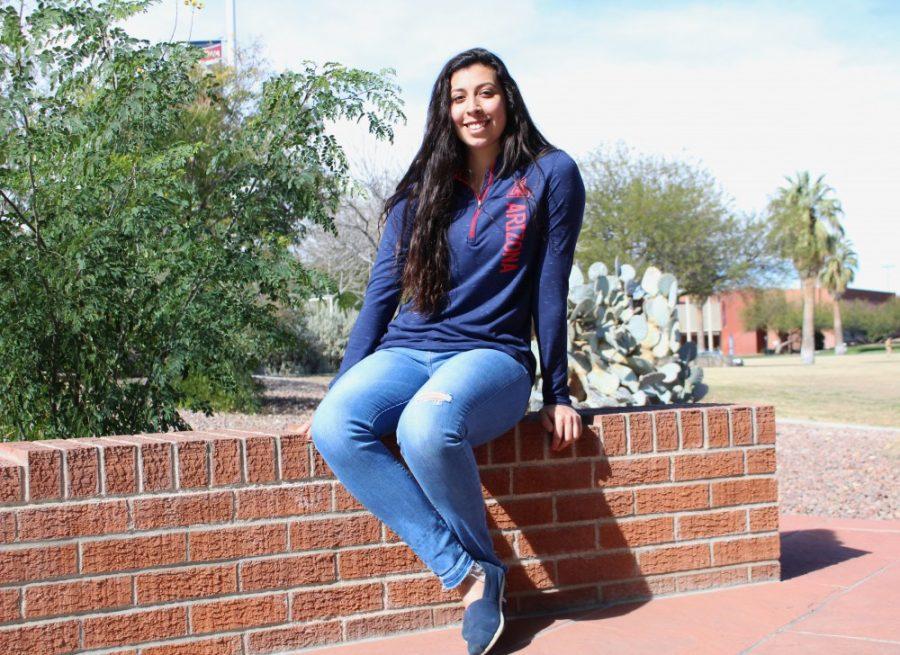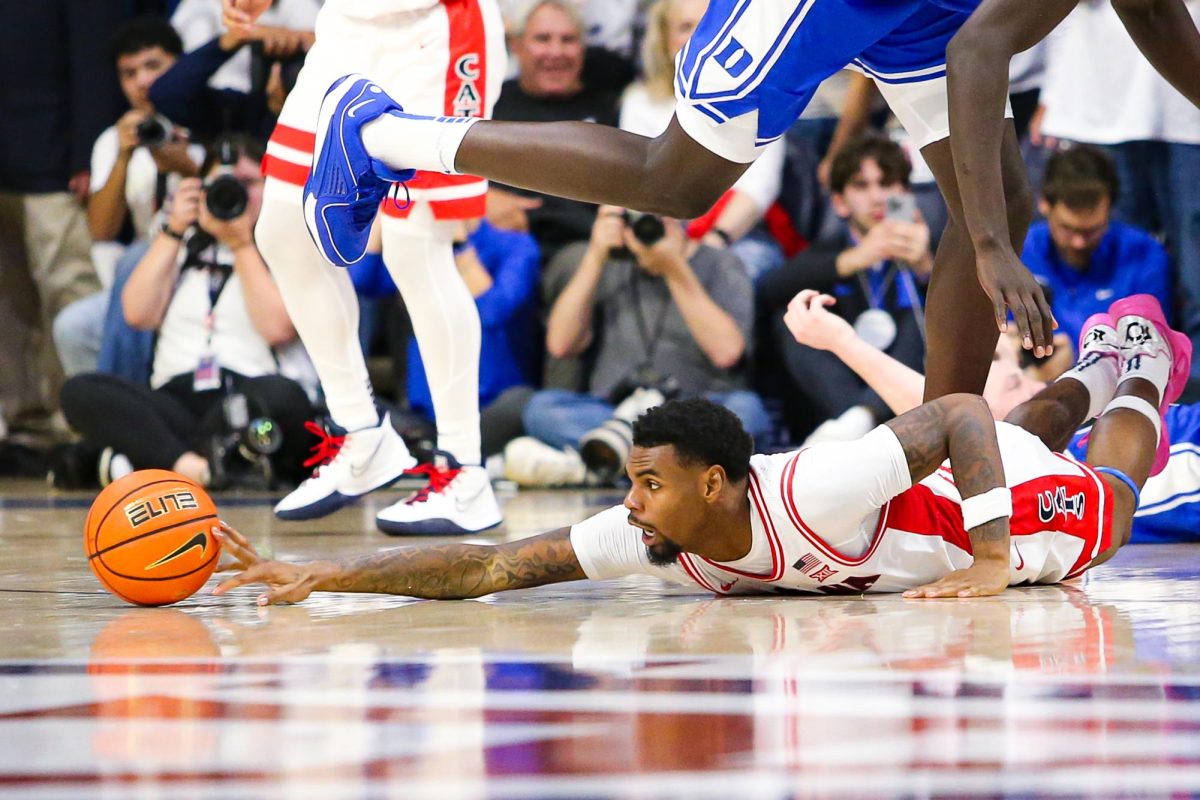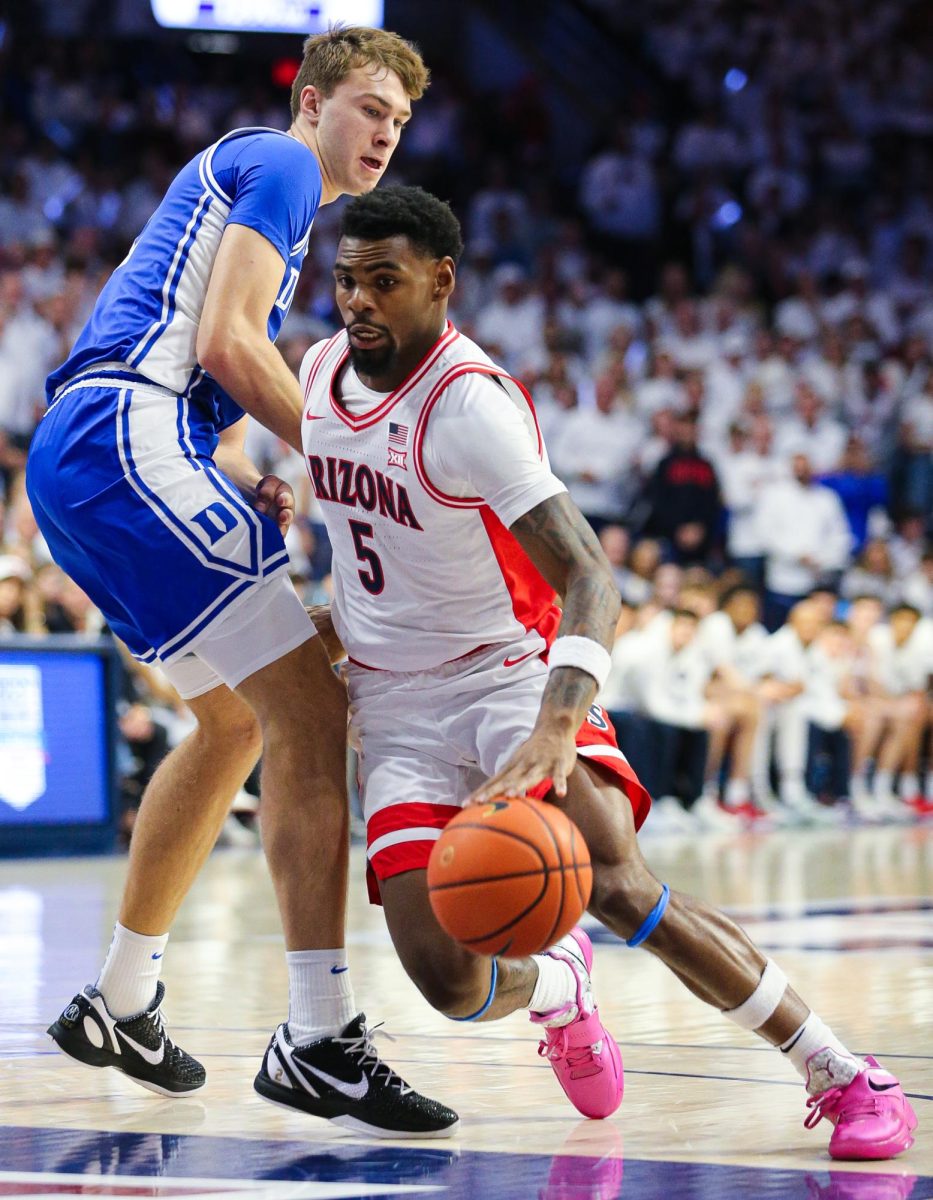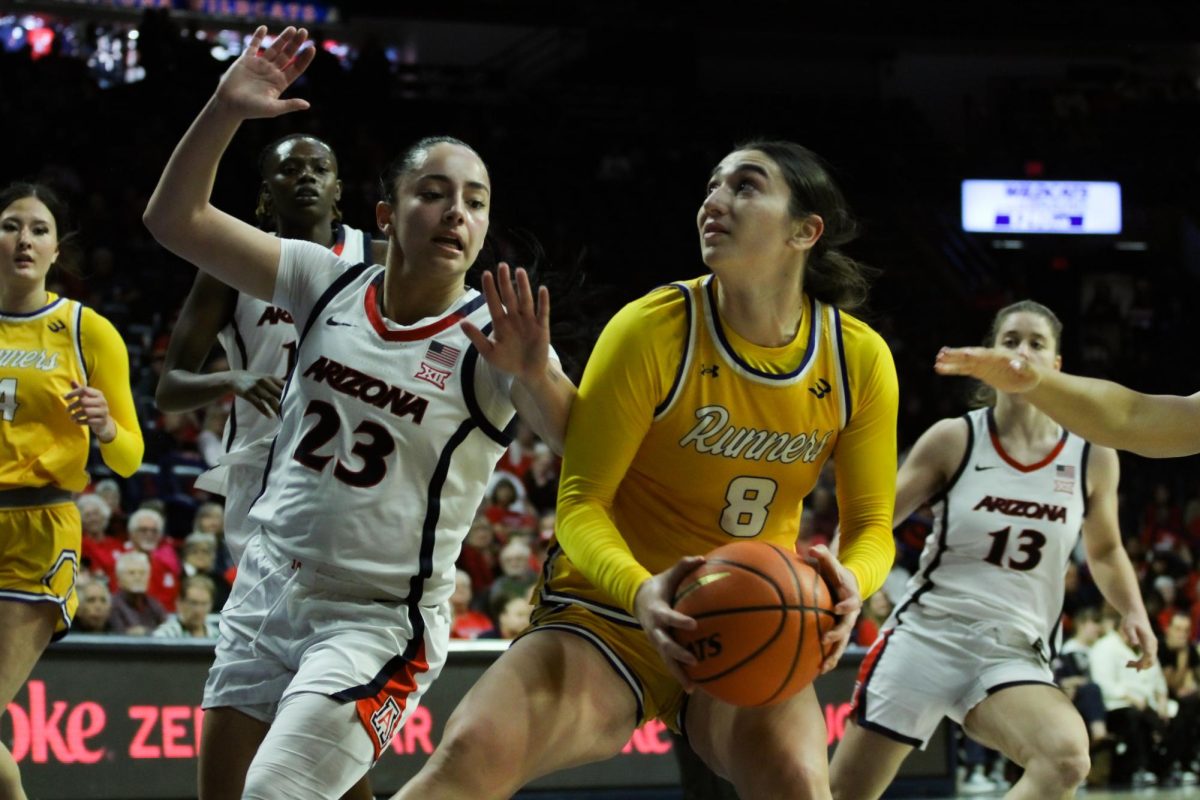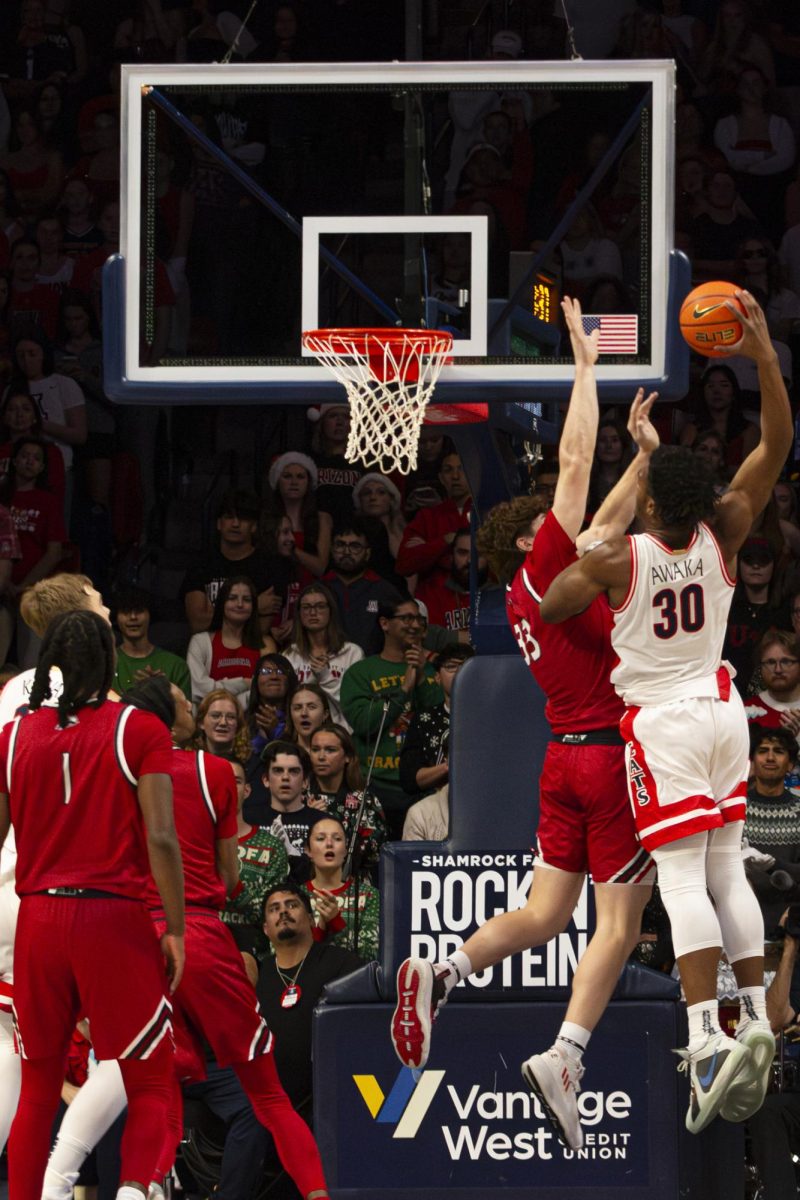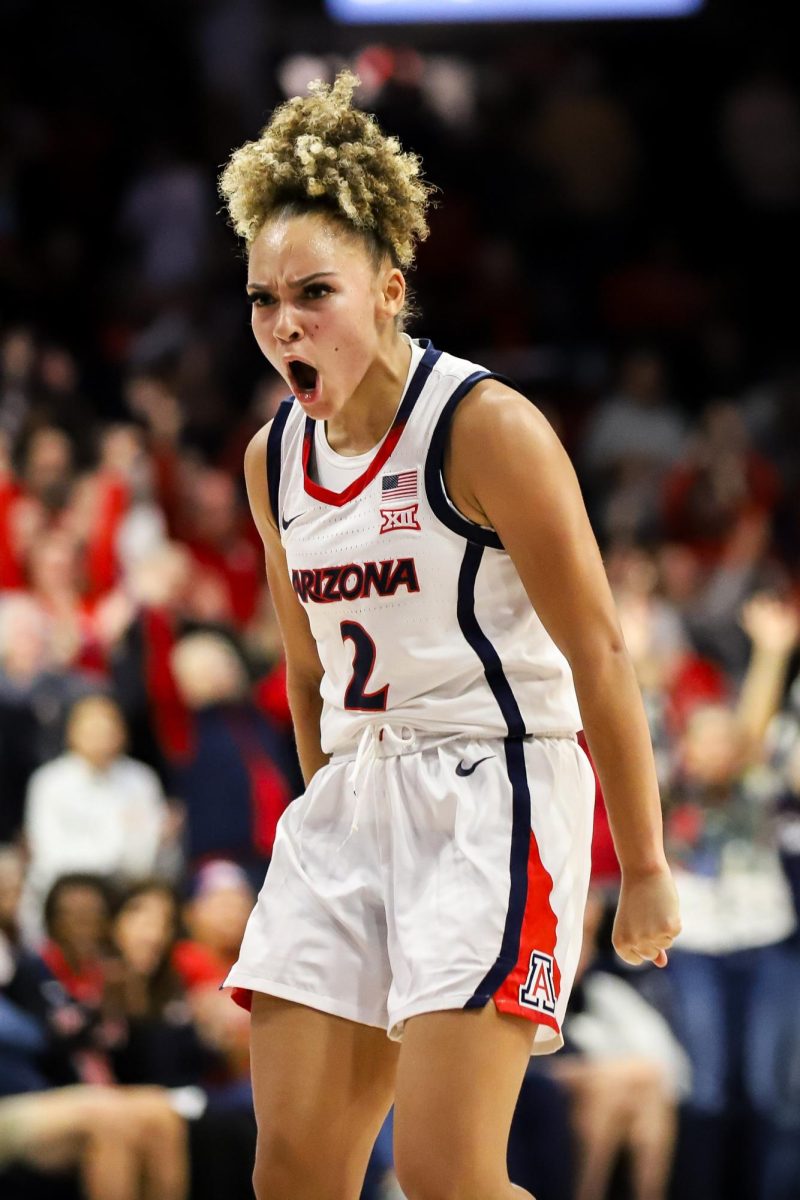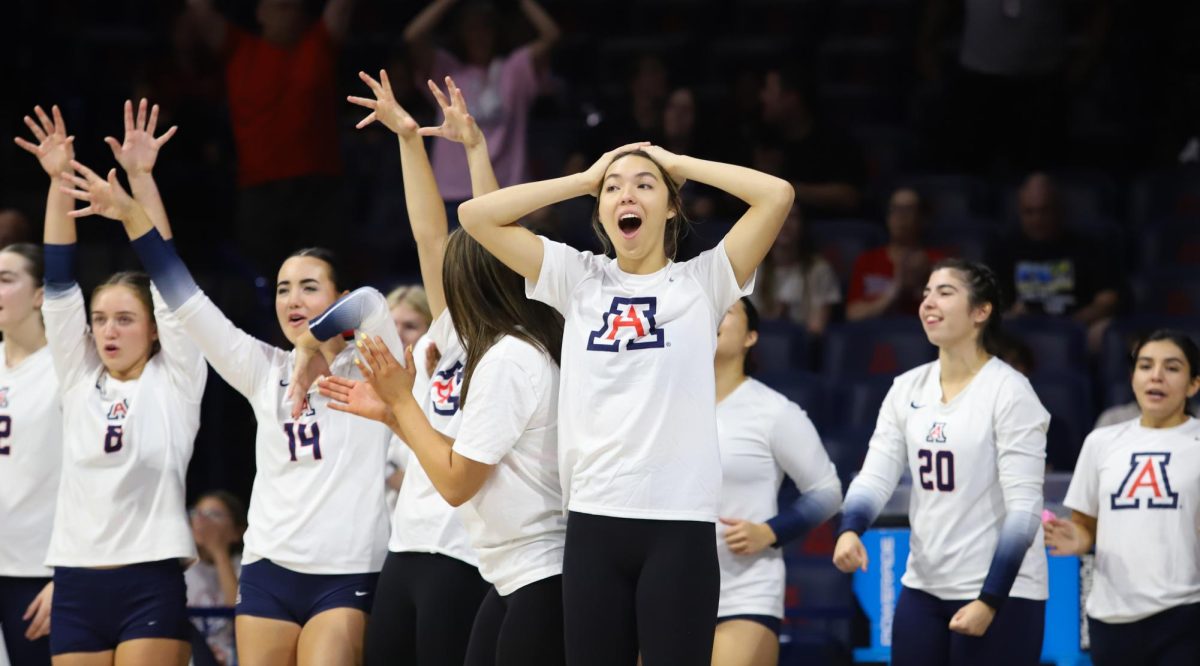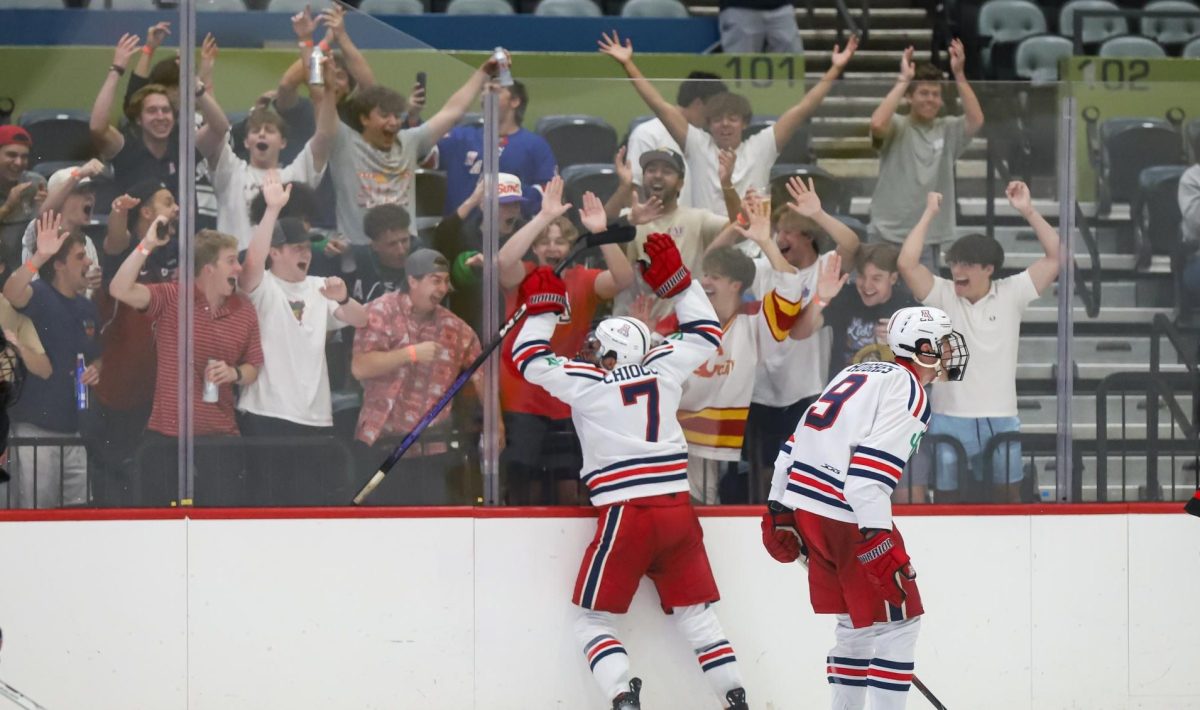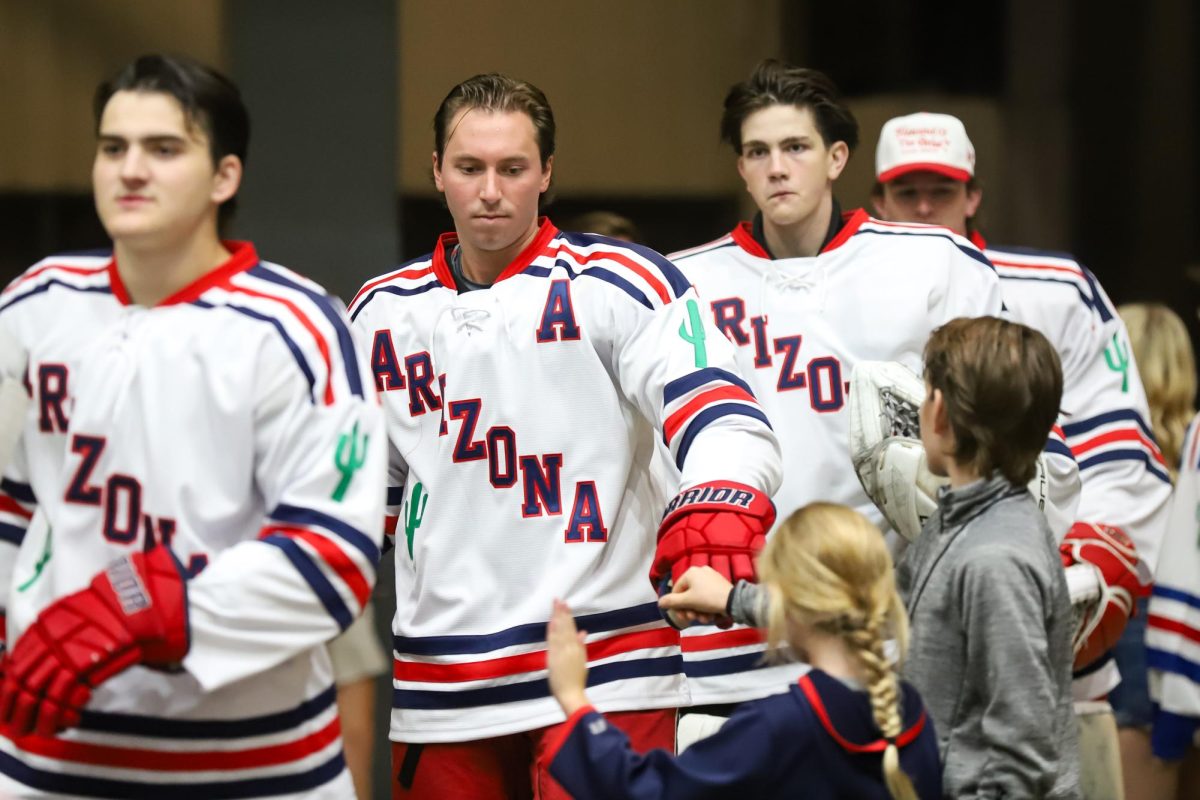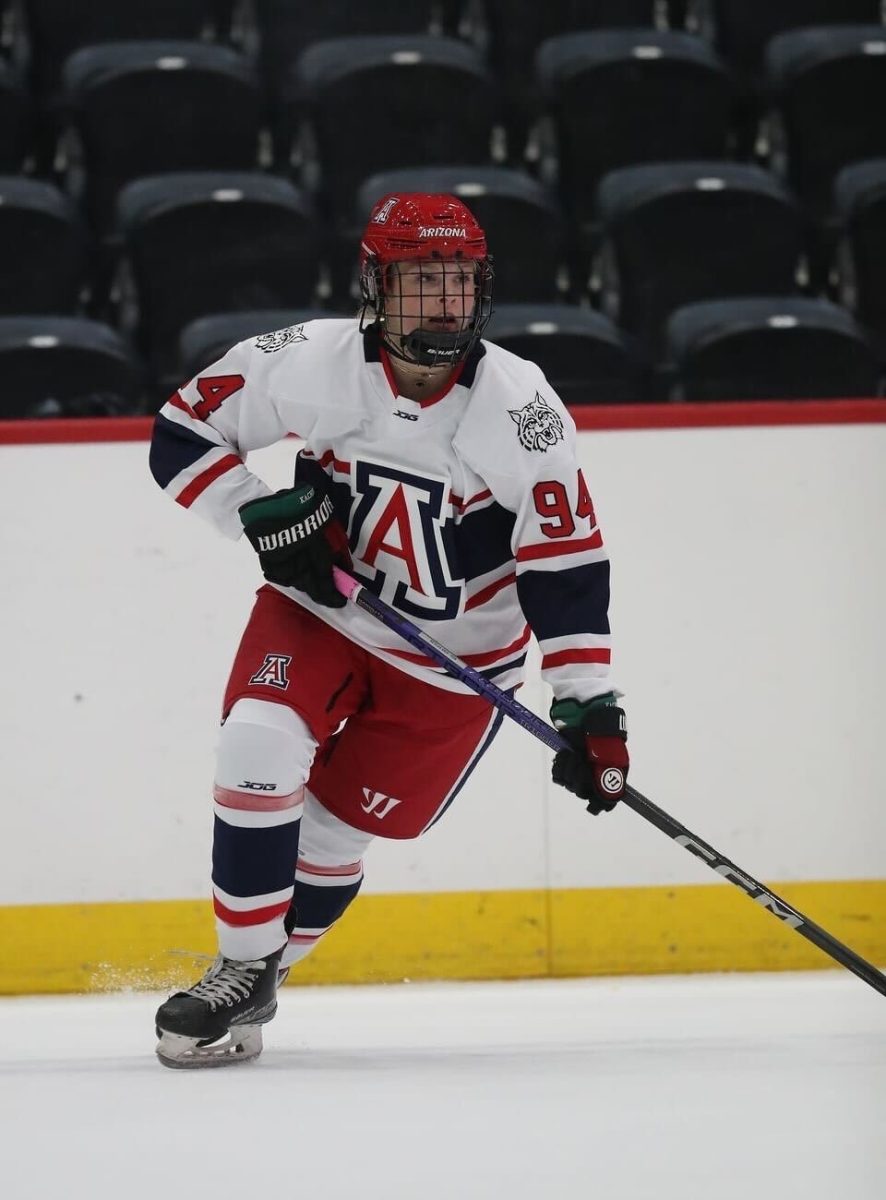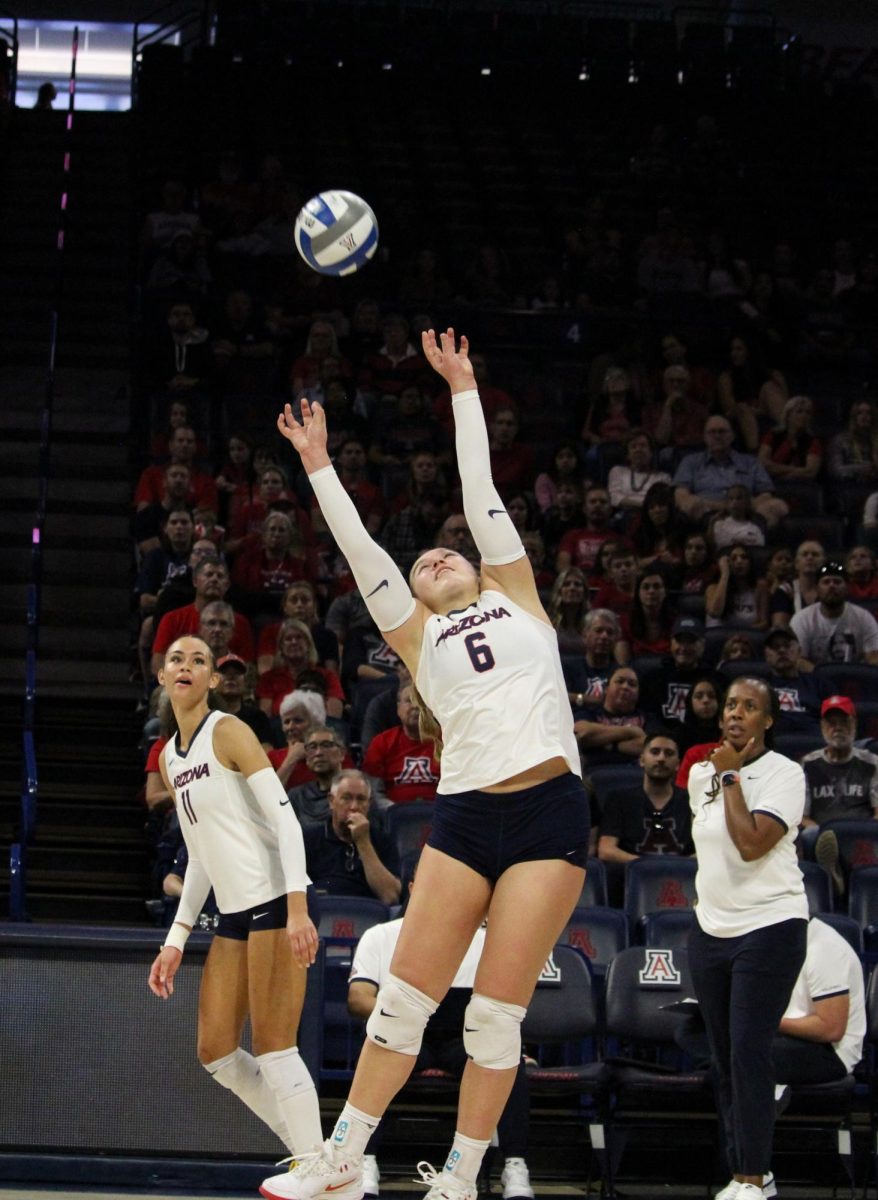Imagine watching a team go 0-18 in conference play in a season and still muster the desire to not only play basketball, but coach it someday. This is Kat Wright, senior forward on the Arizona women’s basketball team, student of the game, player on some forgettable teams during her college career and future college basketball coach — or so she hopes.
Wright has a love of the game from a perspective not many do. She is a student, analyzing the Xs and Os in order to see what the end results not only could be, but whether they actually come to fruition. The process is not lost on her, though that method from a results standpoint has been tough to realize during her playing days.
Wright has been part of a winning season just once during her time at both Florida Atlantic University and Arizona. During her time with the Owls, they went a combined 41-43 in games she played, highlighted by a 14-10 record her freshman year before missing the rest of the season due to injury. Her time at Arizona hasn’t been any better in terms of wins and losses. The Wildcats have a 6-19 record with just four games to play this season. She will finish her career with a losing record.
Prior to Arizona, the losses made Wright question whether playing basketball was something she wanted to do anymore. Having basketball taken away from her due to multiple injuries, and some encouraging words from former Amateur Athletic Union coach, Stan Delus, kept her hope alive.
“I’ve had so many different coaches, some that were good, some that were bad. There were moments early on where I didn’t want to play anymore,” Wright said. “[Delus] got me into college and kind of helped me overcome that hatred of basketball and turn it into something else.”
That was the valley for Wright, the obstacles that can often sidetrack people from their dreams. So perhaps the peaks are just around the corner.
Those close to Wright say she always finds the positive in a situation; you have to when circumstances appear as bleak as they did. These attributes — mental toughness and persistence — are what separates most athletes from their average peers. For Wright, it starts upstairs.
“I’d always kind of been good at basketball, been good at Xs and Os. I understood the game more than most,” Wright said. “But it wasn’t really until I had a coach who kind of put me in a leadership role and said, ‘Hey, this is something you’re really good at,’ that I realized it for myself.”
That coach was former Florida Atlantic head coach Kellie Lewis-Jay, who Wright said she learned a lot from. She admired Lewis-Jay for her poise and teachings on how to deal with adversity, which was more evident during Wright’s last season with FAU, watching a winless team in conference play from the sidelines.
“When she came to me as a freshman, she came with a partially torn ACL, so she couldn’t practice, but I had to have her play,” Lewis-Jay said. “She started for me, and as a freshman, it is really hard to go to a Division I program and not practice but be able to play. But she is so smart, and her basketball IQ was so high, she could sit on the sidelines and absorb it like a senior when she was a freshman. So that was probably the first time she really knew what she was doing and understood the game. She is going to be a great coach.”
According to Lewis-Jay, Wright’s ability to be tough both mentally and physically will give her a big advantage. Her thirst for knowledge and absorption of the smaller details, like recruiting, have put her a step above her peers.
“She is a great recruiter; she was one of our best recruiters; she just understands all aspects of what it takes to be a coach, even at her young age,” Lewis-Jay said. “… Going into being a coach, this job is filled with lots of highs and lots of lows. … She is an extremely hard worker. She is going to leave everything she has on the court, and I have no doubt she will put everything she has into coaching.”
Wright credits Lewis-Jay for turning her into the person she is now. That mentorship is something she wants to give to someone else.
Another lesson? Surround yourself with great people — one of the reasons she finds herself at Arizona with the likes of coaches Adia Barnes, Morgan Valley, Salvo Coppa and Sunny Smallwood, all of whom have experienced success at multiple levels of basketball.
“Coaching is not only about what you know, but who you know, and it’s about the people that you surround yourself with,” Wright said. “It’s all about fight, if you decide to stick together or not. It’s a decision, too; there was a lot of breakdown on my old team, and it was mental lapses and a team that didn’t want to win and didn’t fight for it. I think here we fight every single night we are on the court. We don’t have numbers, but we work our butts off for each other, and we know that is what it’s going to take to get a win.”
The belief that student-athletes go to a university to propel themselves to a lifetime of riches certainly is not the case for a majority of those who don their school colors. Professional careers outside of sports await most, but those who take advantage of opportunities are ahead of the life game, and Wright, selected as one of 62 participants in this year’s “So You Want to be a Coach” program, is doing just that.
The three-day workshop, put on by the Women’s Basketball Coaches Association, is designed as a network opportunity and education on the requirements and responsibilities that entail coaching college basketball. According to the WBCA, there have been 814 participants in the past 15 years of the event; 54 percent of those have gone on to coaching careers, and 53 participants are currently the head coach of a college basketball program.
“It’s great that at her age she is focused on knowing who she wants to be and what she wants to do,” Arizona head coach Adia Barnes said. “She is just so mature, and she is going to be a great coach. … For her, this is a great program, and it is not easy to get into. She is going to meet a lot of people and make a lot of connections and have the opportunity to start at some level, whether that is a coaching position or director of basketball operations position.”
Wright’s desire to influence and mentor is a common trait between herself and Barnes. Both will have different paths to an ultimate goal, but the toughness is common among them.
“There is a saying that coaches touch more lives in a year than a person does in their lifespan. I want to be able to do that,” Wright said.
Follow Saul Bookman on Twitter



